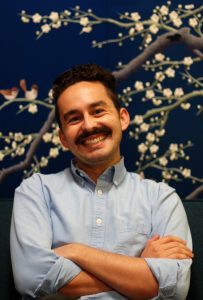
Ryan
Ryan Zamarripa, a Los Angeles native, holds a master’s degree in economics from Columbia University (2017) and a bachelor’s degree in mathematics and economics from Tulane University.
He praises the M.A. program for allowing him to put the rigorous coursework into help for future jobs.
“Since graduating from the M.A. program, I have found that the rigorous coursework to which I was exposed at Columbia has strongly prepared me to distill economic literature into language that is easily digestible to those less familiar with technical mathematical and econometric concepts. Columbia is an institution with a vast network of academics, researchers, and thought leaders who are often willing to engage with curious students.”
He currently works as an adjunct lecturer at the Columbia University School of Social Work, in addition to managing grants under the Build Back Better Regional Challenge, part of the US Economic Development Administration. His work focuses on dismantling economic inequality faced by marginalized communities in the United States.
He credits his master’s thesis with helping him discover his interests and dedication to developing policies to reduce income inequality and preparing him for his future career in policy, legislative, and governmental work.
“Writing my master’s thesis, which focused on the effects of public transportation subsidies on post-transfer wealth distribution in developing countries, likewise provided me with a solid foundation of research and writing skills on which to rely for later projects and literature reviews.The research papers I wrote, including my master’s thesis, were often great writing samples to include with job applications that required them—especially those that explicitly sought applicants with strong technical and writing skills.”
Developing both strong technical and writing skills prepared him for working as a special assistant to Ambassador Katherine Tai in the Office of the U.S. Trade Representatives, a position to which he was appointed after having served as the executive secretary for the same office on the Biden-Harris transition team.
“As someone who has worked almost exclusively in public policy and government since graduation, I have found that the knowledge to which I most commonly refer from the M.A. program is what I learned in the elective courses. While the core curriculum provided a solid base of conceptual and theoretical economics, the elective courses allowed me to learn more about how such ideas are applied to solving real-world problems.”
In 2020, Zamarripa held the volunteer leadership convenor role on the Regional Economies and Battleground States Subcommittee on the Biden-Harris presidential campaign, crediting the M.A. elective courses for helping him tackle policy questions in his professional work.
Despite his impressive professional career, Ryan explains that he did not know exactly what he wanted to do when graduating from the M.A. program, explaining that he “took more time than most of my colleagues to settle into a path that I found fulfilling.”
For current students who are unsure what they want to do in the future, he recommends that “ the best way to begin a career in a new or unfamiliar field is simply to start reaching out to people whose work you admire or find interesting. Most of the time, people are more than happy to give advice, provide industry tips, and talk about their research or work. I have met people through LinkedIn, Twitter, and conferences to schedule coffees and calls, and I try my best to respond to those who reach out to me for the same.”
Prior to working in the Biden-Harris Administration, Zamarripa was the associate director for economic policy at the Center for American Progress and an economics fellow at Third Way. Zamarripa also served as an education volunteer with the Peace Corps in Tanzania.
Stay up to date with our alumni here.

